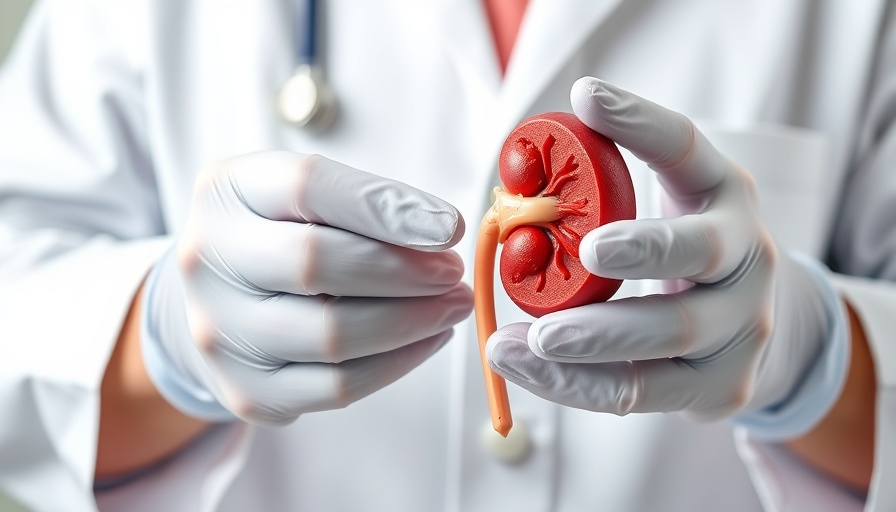
Understanding Ostomy-Related Acute Kidney Injury
Recent studies have raised alarming concerns regarding the link between ostomy-related acute kidney injury (AKI) and increased mortality rates. Research indicates that patients who have undergone ostomy procedures are at a significantly higher risk of developing AKI, leading to potential complications and, ultimately, death.
The Hidden Dangers of AKI Post-Ostomy
Acute kidney injury can often go unnoticed, with symptoms masked by other post-surgical complications. According to the data presented in a comprehensive study, individuals with ostomies experience AKI rates that correlate with increased mortality. The underlying mechanisms include blood flow changes and nephrotoxic effects, exacerbated in post-operative patients.
The Statistical Impact: A Closer Look
In reviewing the disease incidence, around 30% of ostomy patients developed AKI, highlighting the urgency of monitoring kidney function post-surgery. These statistics underscore the need for proactive management strategies post-operatively that can mitigate the risk factors associated with ostomy procedures.
Emerging Patterns in Patient Health Outcomes
A pertinent consideration that emerges is the distinct advantage of personalized treatment protocols. Tailoring approaches to individual patient profiles can play a pivotal role in reducing complications. Advances in AI and machine learning are now enabling healthcare providers to predict AKI risks more accurately and create individualized care plans.
Counterarguments: Is AKI Inevitable?
While the studies collectively present a persuasive link between ostomy and AKI, some critiques indicate that not all ostomy patients may be at equal risk. Genetic predispositions, pre-existing conditions, and other variables can influence patient outcomes. A multi-faceted approach that includes a diverse set of patient profiles is essential in understanding this health issue more comprehensively.
What Can Be Done? Practical Insights for Patients
For patients with ostomies, being aware of AKI symptoms—such as decreased urine output and swelling—is critical. Regular check-ups focusing on kidney health can save lives. It is equally crucial for caregivers and family members to advocate for comprehensive kidney assessments.
Future Predictions in AKI Management
As we look toward the future, innovations in biotechnology hold promise for better prevention and management of AKI in ostomy patients. Continuous monitoring technology, such as wearable devices that track physiological changes, could serve as preventative measures, enhancing patient outcomes.
Final Thoughts on AKI and Ostomy Health
The association between ostomy procedures and increased AKI and mortality rates can't be dismissed. To improve patient outcomes, ongoing research and tailored strategies are paramount. With advancements in technology facilitating personalized healthcare, there’s hope for reducing the prevalence of such serious complications following ostomy procedures.
 Add Row
Add Row  Add
Add 




Write A Comment